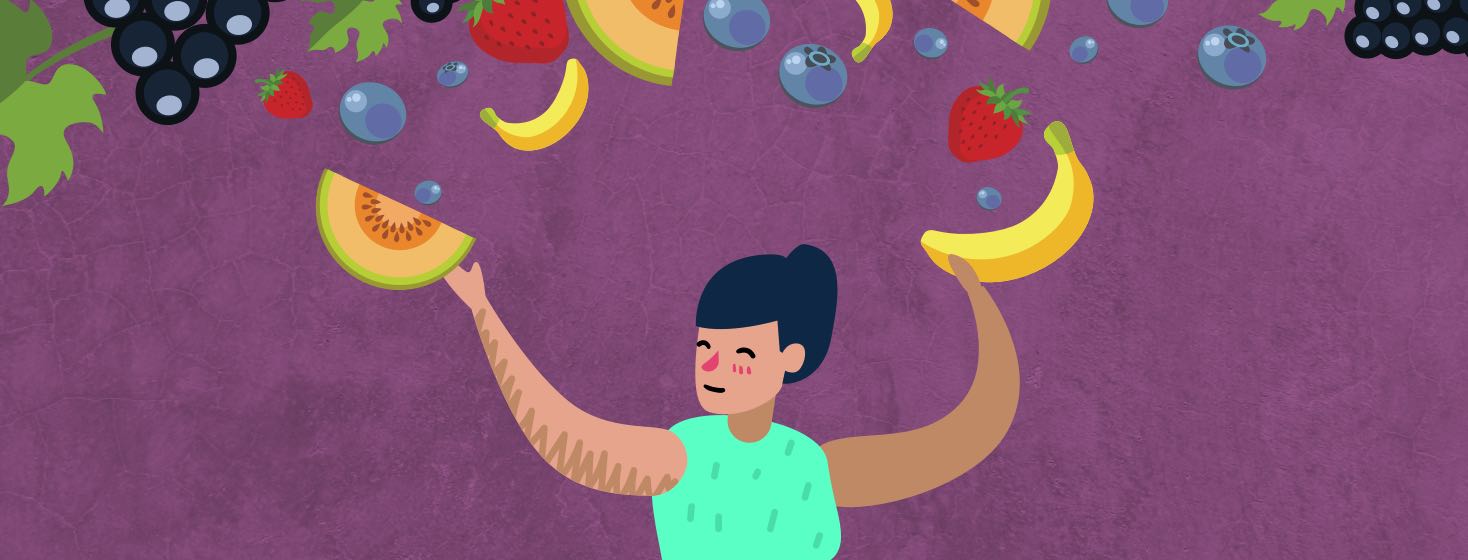Low-Fructose Diet May Ease IBS Symptoms
As a spoonie, I am no stranger to trying different diets in order to gauge what works better for my body. Over the years, I've had to tweak and re-tweak what and how I eat repeatedly, acclimating to new symptoms or diagnoses as they arise. As an adult, I've given up several staples I used to have in my daily diet, including coffee, milkshakes, certain cereals, most alcoholic beverages, and several kinds of condiments. While I may miss these things, I find the benefits of lower pain and experiencing less frequent flares that require immediate and uninterrupted access to a bathroom, outweigh the cost of gratifying a temporary sweet tooth or caffeine fix.
One thing I noticed early on in my IBS journey was that many foods contained fillers that triggered my symptoms, and I learned to become an avid ingredient-label-reader as a result. I remember my first foray into trying a fiber powder as a way to manage my IBS backfired terribly. It was years before I would try a fiber regimen again. But by then I realized: it wasn't so much the fiber that had caused me more issues than they solved that first time around, but the fillers in the brand of fiber I had purchased and consumed. It had contained added sugars and sweeteners, which is a notorious IBS offender. The fiber I use now is pure, and contains no additives or fillers--and it works miraculously in managing my IBS.
Low-fructose diet and IBS
But this also goes for other things I eat, like snacks and drinks. Additives like high fructose corn syrup (HFCS) can actually flare IBS symptoms. The bad news is this is a relatively common--almost ubiquitous--additive found in many pre-packaged foods. The good news is, more awareness in recent years have led to more companies repealing it from their ingredient list. It is now easier to find HFCS-free snacks and drinks than it was not even a half-decade ago (whole and natural food stores are especially good at offering additive-free foods).
Recently, I even stumbled upon a study from 2014 that seemingly confirmed the role of fructose in worsening IBS symptoms. In particular, the study asserted that "[a] low-fructose diet has been found to improve IBS symptoms in some patients." It noted that though fructose is found in small to modest amounts in fruits and vegetables, it is found in excessive amounts in highly processed "convenience" foods. As such, the study concluded that: "Encouraging patients to choose whole foods (e.g., vegetables, grains, nuts, and a selection of fruits as tolerated) and avoid highly-processed foods (e.g., sodas and industrially produced baked goods full of fructose-predominant added sugars), might lead to decided benefit and symptom control in patients with IBS." 1
It should be stressed that even though fruit is healthier than processed snack foods, some fruit can still aggravate IBS, especially those with higher fructose content--such as apples, pears, peaches and watermelon. As an alternative, the Cleveland Clinic suggests a diet that includes more low-fructose fruits that are less likely to flare IBS. These include bananas and berries such as blueberries and strawberries, grapes and cantaloupe. 2
I personally find low-fructose fruits fairly benign when it comes to my IBS, and tend to steer clear of more high-fructose fruits---and I definitely notice a difference.
How about you? Do fruits or processed foods containing a lot of fructose bother your IBS? Did you reduce your fructose intake and notice an improvement in your IBS symptoms? Please feel free to discuss in the comments section below.

Join the conversation